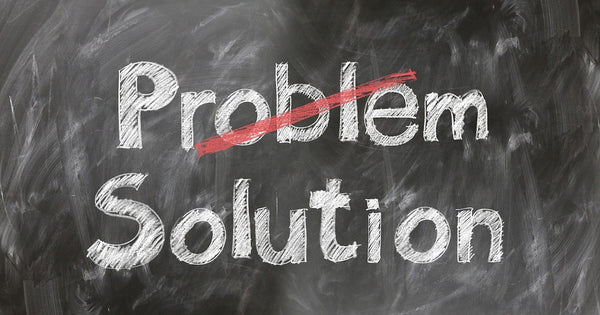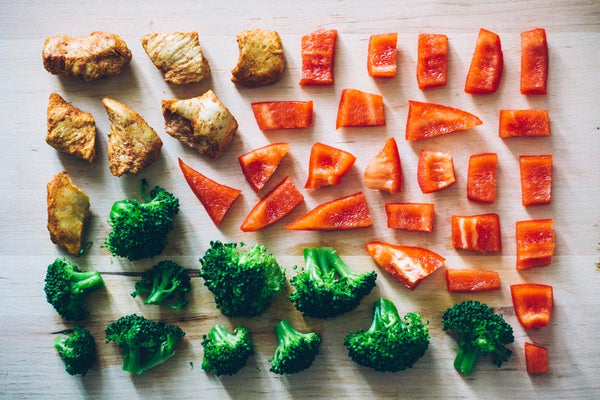Life has become extremely busy. More than I could ever have imagined. Between running a business full-time, family, friends and day-to-day responsibilities, there are more things on my to-do list than I can physically get done in one day. It feels similar to how my friends describe having a newborn baby: days run into the next and yesterday seems like a week ago, I forget the most basic things, and a full 8-hour night’s sleep is definitely a luxury. But rather than allow myself to get burnt out, I’m learning to utilize many of the same strategies I taught my patients to help reduce cognitive load, and free up vital mental space for the things and tasks that matter most to me or require my fullest attention.
So what exactly is cognitive load?
Cognitive load is the amount of mental effort required by our working memory to complete an activity. Our working memory (AKA our mental workspace) has a limited capacity for processing information at one time and is susceptible to overload. Just as computers run slower when there are multiple programs open at once, our mental performance also suffers when we’re trying to keep track of too many things, no matter how simple or complex. This may cause us to miss important details, take longer to process information, or even become overwhelmed and experience a mental shutdown, which may result in us abandoning a task altogether.

To get the most out of our working memory and harness its true powers, it’s important to focus on processing the most crucial pieces of information throughout our days. We can do this by filtering out the inessentials and streamlining our lives. As my schedule becomes busier, I’ve found that streamlining basic decisions, or removing the need to make them altogether, saves my mental energy for the things that truly matter, which essentially leaves me feeling less stressed, more productive and more fulfilled.
Here are some examples of how I simplify daily tasks to reduce cognitive load:
- Setting Reminders: I'm personally learning to set reminders for everything from drinking a glass of water (yes, it’s easy to get lost in my work and realize at 5pm that I’ve had only one glass), to stopping to take a few deep breaths (an iPhone reminder goes off twice a day to help me remember to take a break and slow down), and even for returning phone calls. It might sound silly, but this takes the stress out of having to remember to do these everyday things, which are more likely to slip my mind because they are so basic.
- Limiting Non-Essential Decisions: I wear the same style shirt for all community markets, craft fairs and meetings, which saves me more time than I could ever have imagined. Picking out an outfit can waste unnecessary energy and this takes all of the thought out of it! Even Barack Obama utilized this strategy, which is why we always saw him in a blue or gray suit ;) I apply the same strategy to all of my social media posts by scheduling them out in advance, which I typically complete during commercial breaks or while dinner is cooking, as well as choosing my workouts so I don’t waste time figuring out what to do or get discouraged in the process (because let’s be honest, 5 minutes too late and my butt is going to be way to cozy to get off the couch!)

- Creating Checklists: Creating checklists for tasks that I have to do often has also been a huge time-saver. Rather than trying to recall everything from memory, I’m able to simply look at the list and cross off items as I pack or use them. This has been especially useful for product cooks and getting ready for decorating a booth at community markets. Not only does this save my brain from having to run through all of the ingredients or table decorations each time, it also saves my husband an extra trip home to pick up the one thing I happened to forget!
- Subscribing: All of our household items and/or toiletries that need to be frequently replenished are automated by subscription services. Everything from tampons to toothbrushes, to toilet paper, tissues, and paper towels are delivered right to our door without any thought or effort on my part. And the packages always arrive just as we’re running low. No more running out last minute to find tampons for this girl!
- Meal Planning: While I haven’t gotten to the point where I’m able to actually meal prep for the entire week, I’ve found that having our menu planned out for everything from breakfast to lunch and dinner, brings a sigh of relief. In the middle of a busy workday, it took a lot out of me to stop and figure out what I was going to eat. This often resulted in postponing a meal for a few hours 😳 or resorting to totally unhealthy fast foods (hey, we’re all human!). But having a list on my phone or taped to the fridge makes the whole process mindless and so much less stressful. It’s so helpful even Warren Buffet does it ;) Tip: Just because it’s scheduled doesn’t mean that you have to eat it. I create the menu options for the week and just choose the one I'm in the mood for that day (i.e., 3 lunch options, 4 dinner options, etc.), to help keep me from getting bored.

- Chunking: While this doesn’t always work out as it’s intended to (we can’t plan for unforeseen variables), I’ve found that scheduling similar tasks on the same day helps me to be more efficient overall. For instance, I clump all tasks that need to be completed outside of my home office on the same day. This allows me to really focus without interruption on the days that I am able to work from home. The same goes for any tasks that require less cognition (e.g., replying to text messages, social media comments, or basic emails), which I try to complete during commercial breaks, while meals are cooking or handsfree on my drives and walks.
- Writing It Down! Anytime I think of something I need to do that I can’t complete immediately in that moment, I write it down. This is one of the best and easiest strategies I carried with me from my therapy giving days, and it was also the hardest to get my patients to do! The rule of thumb typically goes: If you don’t write something down the moment you think of it, the chances of remembering it when you need to are slim. While the thought may come back to you at a later time, there’s not much one can do about sending that birthday message when in bed at 1am!
I wish I could say that I’m able to do all of these daily (or even weekly for that matter!) but there are times when everything I know falls to the wayside as I succumb to the chaos of my days. But knowing that these strategies are available to me, and taking the time to reflect on how I can be better, definitely helps in paving the way and reducing my cognitive load.
As Always, Love + Light,
~Smita :)
